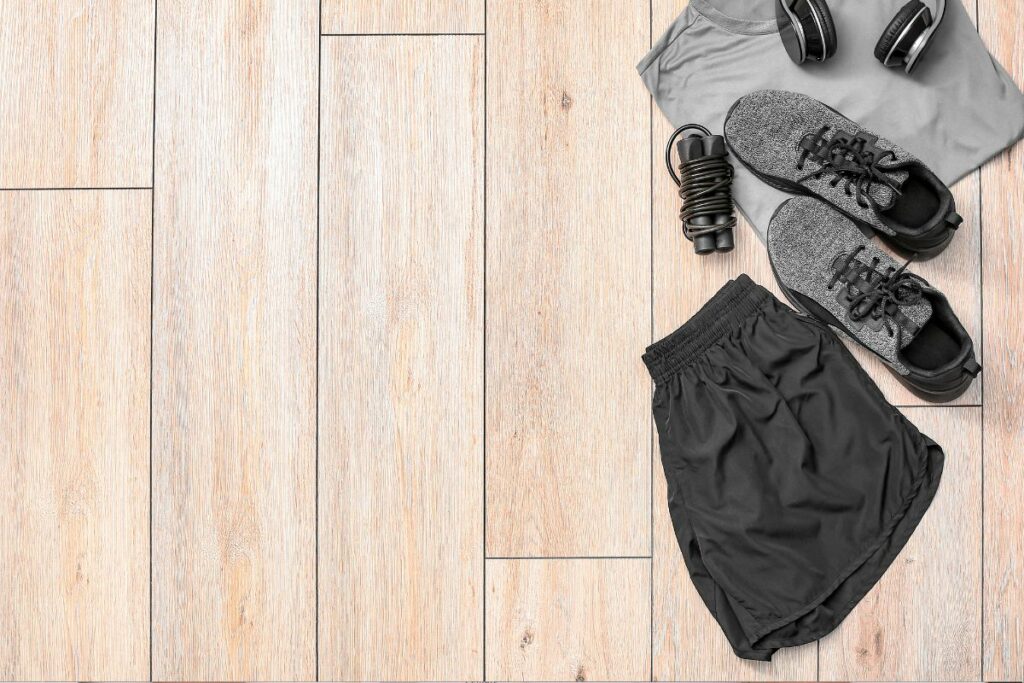
The fashion industry causes a lot of pollution and unfair treatment of people. Making clothes uses a lot of water, energy, and chemicals, and throwing away old clothes is very harmful to our planet. During this crisis, more and more people want sustainable options and are looking for clothing that matches their ethical and environmental beliefs. Eco-friendly fashion has become an important movement, and this includes casual and athletic clothing.
The Case for Sustainble Leisurewear and Sportswear
Clothes for relaxing and exercising, which used to be mainly about being comfortable and useful, are now also seen as a way to show off personal style and care for the environment. People are becoming aware that their decisions affect the environment, and they want products that work well and are good for the planet.
Making regular clothes for relaxing and sports can be harmful. This is because it often uses synthetic materials made from oil and uses dangerous dyes. These actions lead to air and water pollution and cause tiny plastic pieces that are bad for ocean animals. Also, the fast fashion trend, which focuses on cheap prices and quick changes in styles, has caused people to buy too many clothes and has created a lot of textile waste.
The leisurewear and sportswear industry can help the environment by using eco-friendly materials, making products in a sustainable way, and treating workers fairly. This move towards being environmentally friendly helps the Earth and also makes a brand look good and brings in customers who care about the environment.
Sustainable Materials: The Foundation of Eco-Friendly Fashion
Choosing the right materials is very important for making eco-friendly clothes for sports and casual wear. There are many eco-friendly options for fabrics now that work as well and feel just as comfortable as regular ones.
● Recycled Polyester: Made from plastic bottles and other waste, recycled polyester lowers the need for new materials and helps keep plastic out of landfills. It’s a common choice for sports clothes because it keeps you dry and lasts a long time.
● Organic Cotton: Organic cotton is grown without harmful chemicals, making it safer for the environment and kinder to your skin. It needs more water than some man-made fabrics, but it can break down naturally and is a resource that can be grown again.
● Tencel: This material comes from wood that is sourced responsibly. It is soft, lets air through, and breaks down naturally. It uses much less water and energy to grow than regular cotton.
● Bamboo: Bamboo is a fast-growing material that can be used again and again. It naturally fights germs and is safe for people with allergies. It is often used in casual clothes because it is soft and keeps you dry.
● Recycled Nylon: Like recycled polyester, recycled nylon comes from waste that was created before or after it was used. This helps lessen the need for oil and other fossil fuels.
Sustainable Production Processes: Minimizing Environmental Impact
Along with picking materials that are good for the environment, it’s also important to use eco-friendly methods when making leisure and sports clothing to lessen their impact on the planet.
● Water Conservation: Using smart ways to manage water, like closed-loop systems and dyeing processes that don’t use water, can greatly lower the amount of water we use.
● Energy Efficiency: Using clean energy and energy-saving tools can reduce harmful carbon emissions.
● Chemical Reduction: It is very important to use safe dyes and finishes and to reduce harmful chemicals during production to keep people and the environment healthy.
● Waste Reduction: Starting programs to aim for no waste, like recycling leftover fabric and using less packaging, can help cut down on waste.
Custom Sports Apparel: A Sustainable Approach to Personalization
The growth of custom sports apparel has led to new chances for being environmentally friendly. By making clothes that fit what individual customers want, brands can create less extra stuff and cut down on waste. This method lets people make one-of-a-kind items that show off their personal style while being kinder to the environment. Custom sports apparel lets people pick eco-friendly materials and methods, making sure their clothes match their beliefs. By teaming up with eco-friendly suppliers and using careful production methods, brands can create trendy products that are good for the environment.
Ethical Labor Practices: Empowering Workers
A truly sustainable fashion industry needs to treat workers fairly at every step of the process. Good working conditions are important to make sure clothes are made safely and that workers get fair pay and benefits.
Helping fair trade certifications and clear supply chains can help people choose wisely about the brands they buy from. By focusing on fair work practices, the leisurewear and sportswear industry can help promote fairness in society and make the lives of clothing workers better.
Consumer Awareness and Education
It’s important to help consumers understand how the fashion industry affects the environment and society so they will want to buy eco-friendly products. Teaching people about the good things that come from using eco-friendly materials, safe ways of making products, and fair working conditions can help them make smart choices.
Brands can help teach customers by openly sharing information about their efforts to be environmentally friendly and how their products affect the planet. By being honest and open, brands can create loyal customers who care about sustainability.
Conclusion
The future of clothing is about being environmentally friendly. By using environmentally friendly materials, producing clothes in a sustainable way, treating workers fairly, and educating shoppers, the leisurewear and sportswear industry can help create a better future for the planet. Custom sports apparel give people a chance to personalize their outfits while also being good for the environment, making items that serve both customers and the planet.
As more people want sustainable fashion, brands need to focus on using eco-friendly methods and being clear about their practices. When the fashion industry collaborates, it can help the environment and communities while still providing trendy and useful casual and sports clothing.
